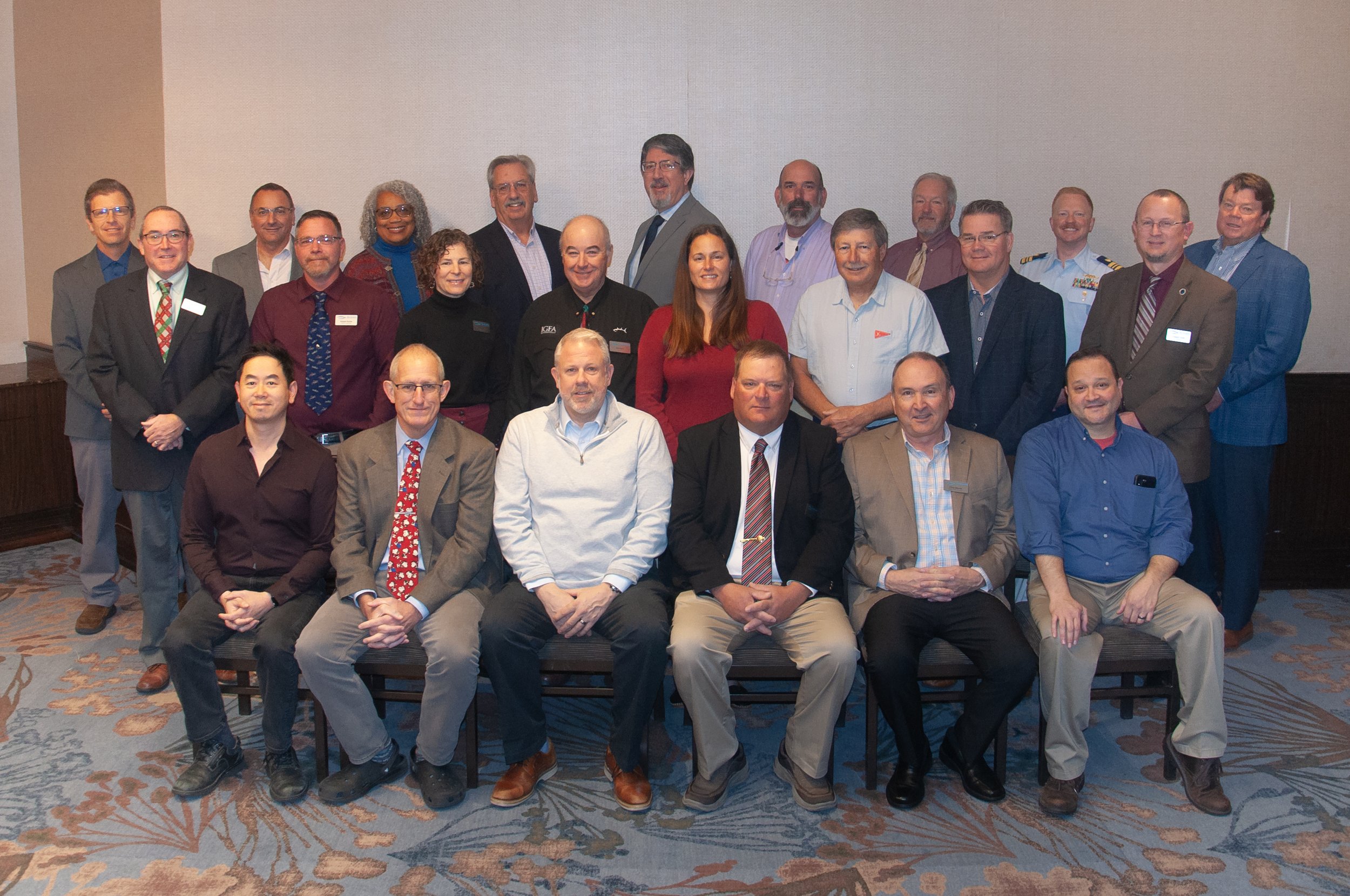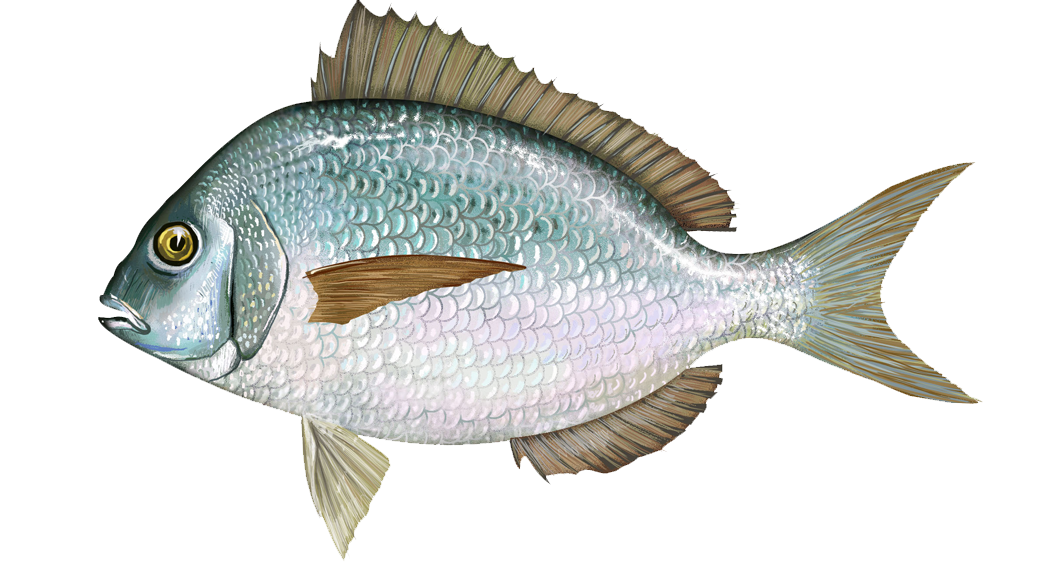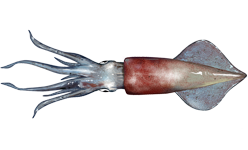The Mid-Atlantic Fishery Management Council met December 12-14, 2023, in Philadelphia, PA. Presentations, briefing materials, motions, and webinar recordings are available on the December 2023 Meeting Page.
Highlights
During this meeting, the Council:
Reviewed analysis of several summer flounder commercial mesh regulations and agreed to develop a framework/addendum to further consider potential changes to the Small Mesh Exemption Program and the flynet exemption*
Approved the use of regional conservation equivalency to achieve the required 28% reduction in recreational harvest of summer flounder in 2024-2025*
Agreed that the states will work through the Commission process to achieve the required 10% reduction in the recreational harvest of scup in 2024-2025*
Recommended removing the previously-adopted closure of the recreational scup fishery in federal waters from January 1-April 30 (resulting in a year-round open season in federal waters)*
Approved status quo recreational black sea bass measures for 2024*
Modified the preliminary range of alternatives for the Summer Flounder, Scup, Black Sea Bass, and Bluefish Recreational Measures Setting Process Framework/Addenda
Approved a Guidance Document for Council review of Exempted Fishing Permit (EFP) applications for species designated as Ecosystem Components through the Unmanaged Forage Amendment
Adopted spiny dogfish specifications 2024-2026, including a 10.7-million-pound commercial quota for 2024
Adopted Atlantic mackerel specifications for 2024-2025, including a 1.9-million-pound commercial quota for both years
Reviewed the golden tilefish Individual Fishing Quota program review and initiated a 30-day public comment period
Approved the 2024 Implementation Plan
Received a presentation from the Responsible Offshore Science Alliance (ROSA)
* Items denoted with an asterisk (*) were undertaken during joint meetings with the Atlantic States Marine Fisheries Commission’s Summer Flounder, Scup, Black Sea Bass Management Board or Interstate Fisheries Management Program Policy Board
Summer Flounder Commercial Mesh Size Regulations and Exemptions
The Council met jointly with the Atlantic States Marine Fisheries Commission’s Summer Flounder, Scup, and Black Sea Bass Management Board (Board) to review analysis of, and public input on, several summer flounder commercial mesh regulations, including: 1) the current 5.5-inch diamond and 6.0-inch square minimum mesh size, 2) the summer flounder Small Mesh Exemption Program (SMEP), and 3) the summer flounder flynet exemption.
The Council and Board recommended no change to the current summer flounder minimum mesh sizes, due to the lack of sufficient evidence to suggest a change is warranted. They agreed that additional selectivity studies should be considered as a research priority, including exploring the selectivity of a wider range of square mesh sizes and further comparing selectivity between square and diamond mesh.
The Council and Board also recommended development of a framework/addendum to further consider potential changes to the two mesh exemptions as a priority in 2024. Specifically, this action would consider revisions to the definition of a flynet as well as modifications to the western boundary of the small-mesh exemption area. The changes are intended to be implemented by November 1, 2024, if possible.
Summer Flounder, Scup, and Black Sea Bass Recreational Management Measures
The Council and Board also adopted recreational management measures (i.e., bag, size, and season limits) for summer flounder, scup, and black sea bass. This was the second year of setting measures under the Percent Change Approach, and the first year of setting measures for two-year cycles for summer flounder and scup. Black sea bass measures were set for 2024 only due to the timing of the management track assessment.
The Percent Change Approach uses a comparison of the RHL to an estimate of expected harvest, in addition to stock size, to determine if measures should be restricted, liberalized, or remain unchanged for the next two years.
Prior to their deliberations for each species, the Council and Board received a brief overview of the Recreation Demand Model (RDM). The RDM was developed by the Northeast Fisheries Science Center (NEFSC) to predict the effect of proposed recreational measures on angler satisfaction, fishing effort, recreational harvest, and recreational discards of summer flounder, scup, and black sea bass. The RDM was first used in setting 2023 measures and will be used again for the upcoming years.
2024-2025 Summer Flounder Recreational Measures
The Percent Change Approach requires a 28% reduction in recreational harvest of summer flounder in 2024-2025. This reduction is needed because the RHL for 2024-2025 (6.35 million pounds) falls below the confidence interval around projected harvest for these years, and the stock size is below the target level. Measures will be restricted to achieve the full 28% reduction in 2024 and then will remain unchanged in 2025 unless new information suggests a major change in the expected impacts of those measures on the stock or the fishery.
The Council and Board also approved the use of regional conservation equivalency in 2024-2025. Non-preferred coastwide measures, which are written into the federal regulations but waived in favor of state measures, include an 18.5-inch minimum size, 3 fish possession limit, and open season from May 8-September 30. Precautionary default measures include a 20-inch minimum size, 2 fish possession limit, and open season from July 1-August 31. These measures are only intended to be used for states/regions which do not comply with the conservation equivalency process. State waters measures will be determined through the Commission process in early 2024.
2024-2025 Scup Recreational Measures
A 10% reduction in recreational harvest of scup in 2024-2025 is required under the Percent Change Approach. This reduction is needed because the average RHL for 2024-2025 (12.51 million pounds) falls below the confidence interval around estimated harvest under status quo measures for these years, and stock biomass is more than 150% of the target level. Measures will be restricted to achieve the full 10% reduction in 2024 and then will remain unchanged in 2025 unless new information suggests a major change in the expected impacts of those measures on the stock or the fishery. The Council and Board agreed that the 10% coastwide harvest reduction will be achieved by the states through the Commission process in early 2024.
The Council and Board revisited their previous decision to close the recreational scup fishery in federal waters from January 1 to April 30. The shortened season was recommended by the Council and Board in December 2022, but due to the timing of federal rule making, it is not expected to go into effect until 2024. During this meeting, the Council and Board discussed concerns that some states may be disproportionately impacted by the federal waters closure. Staff presented an analysis of Vessel Trip Report (VTR) data which were used to estimate total recreational harvest during this time period. The analysis suggests the closure would have minimal impact on overall coastwide harvest given the limited recreational effort for scup that typically occurs between January and April. Based on this analysis and recommendations from the Monitoring Committee, the Council and Board recommended a year-round open season in federal waters for 2024-2025 to give the states greater flexibility when modifying measures to meet the 10% reduction. The Council and Board recommended no changes to the current 40 fish possession limit and 10-inch minimum size in federal waters.
2024 Black Sea Bass Recreational Measures
The Council and Board discussed the approach for recreational black sea bass management in 2024. Recreational measures for 2023 were set for a single year with the intent of setting 2024-2025 measures based on a 2023 management track assessment. However, this assessment was later delayed to 2024 to allow more time to fully develop a research track assessment.
The RDM indicates the confidence interval around the estimated 2024 harvest based on 2023 measures exceeds the 2024 RHL. Combined with the most recent estimate of biomass from the 2021 management track assessment (i.e., 210% of the target level), this would require a 10% reduction in harvest under the Percent Change Approach. However, the Percent Change Approach did not contemplate a situation where the RHL would be revised without updated stock assessment information, as was the case with the 2024 black sea bass RHL. The 2024 RHL is about 5% lower than the 2023 RHL due to three additional years of catch data in the calculations. As such, updated information is only available for one of the two factors that guide decision making under the Percent Change Approach (i.e., an updated comparison of the harvest estimate confidence interval to the RHL, but no updated biomass information). Therefore, the Council and Board agreed with the Monitoring Committee’s recommendation to leave recreational black sea bass measures unchanged in 2024. This would treat 2024 as the second year in a two-year cycle with 2023. They noted that this is the only opportunity for unchanged measures across two years for black sea bass under the Percent Change Approach given the expected timing of management track assessments and the sunset of the Percent Change Approach after 2025. Measures for 2025 and 2026 will be set based on updated stock assessment information and updated runs of the RDM.
If states wish to consider slight season adjustments under this status quo approach (e.g., to maintain a Saturday opening), those proposals must be supported by additional runs of the RDM and approved by the Board.
The Council and Board also agreed to continue the use of conservation equivalency to waive federal waters measures in favor of state waters measures. Under the status quo approach, the non-preferred coastwide measures will remain a 15-inch minimum fish size, a 5 fish possession limit, and a May 15 – September 8 open season. Under conservation equivalency, these measures are waived in favor of state measures. The precautionary default measures will remain a 16-inch minimum fish size, a 2 fish possession limit, and a June 1 – August 31 open season. These measures are only intended for states/regions which do not comply with the conservation equivalency process.
Summer Flounder, Scup, Black Sea Bass and Bluefish Recreational Measures Setting Process Framework/Addenda
The Council met jointly with the ASMFC’s Interstate Fisheries Management Program Policy Board (Policy Board) to receive an update on the Summer Flounder, Scup, Black Sea Bass, and Bluefish Recreational Measures Setting Process Framework/Addenda. The Council and Policy Board agreed to refine the preliminary range of alternatives by modifying the Biological Reference Point Approach and Biomass Based Matrix Approach alternatives such that measures will no longer be assigned to all bins the first time either approach is used through the specifications process. Over the next several months, the Fishery Management Action Team (FMAT)/Plan Development Team (PDT) will continue to develop all alternatives under consideration, including providing greater detail on how measures would be set under the Biological Reference Point and Biomass Based Matrix Approaches.
Guidance Document for Council Review of Exempted Fishing Permit Applications for Unmanaged Forage Amendment Ecosystem Component Species
The Council reviewed and approved a Guidance Document for Council Review of Exempted Fishing Permit (EFP) Applications for Unmanaged Forage Amendment Ecosystem Component (EC) Species. The document is intended to establish a standard process for Council review of EFP applications for the 50+ species listed as EC species under the Unmanaged Forage Omnibus Amendment (Forage Amendment). Implemented in 2017, the Forage Amendment established a 1,700-pound possession limit for EC species in Mid-Atlantic Federal waters. The goal of this amendment was to prohibit the development of new and expansion of existing directed commercial fisheries for these species until the Council has had an adequate opportunity to assess the relevant scientific information and consider potential impacts. The Forage Amendment requires use of an EFP as a first step towards the Council considering allowing landings beyond the 1,700-pound possession limit. In addition to establishing a standardized process for EFP review, the guidance document is intended to communicate the Council’s priorities regarding EC species to prospective EFP applicants. The final document is available on the Council website at https://www.mafmc.org/forage.
Spiny Dogfish 2024-2026 Specifications
After reviewing advice from its Scientific and Statistical Committee (SSC) and considering input from the public, the Council adopted spiny dogfish specifications for the 2024-2026 fishing years. The Council’s recommendations are summarized in the table below.



















